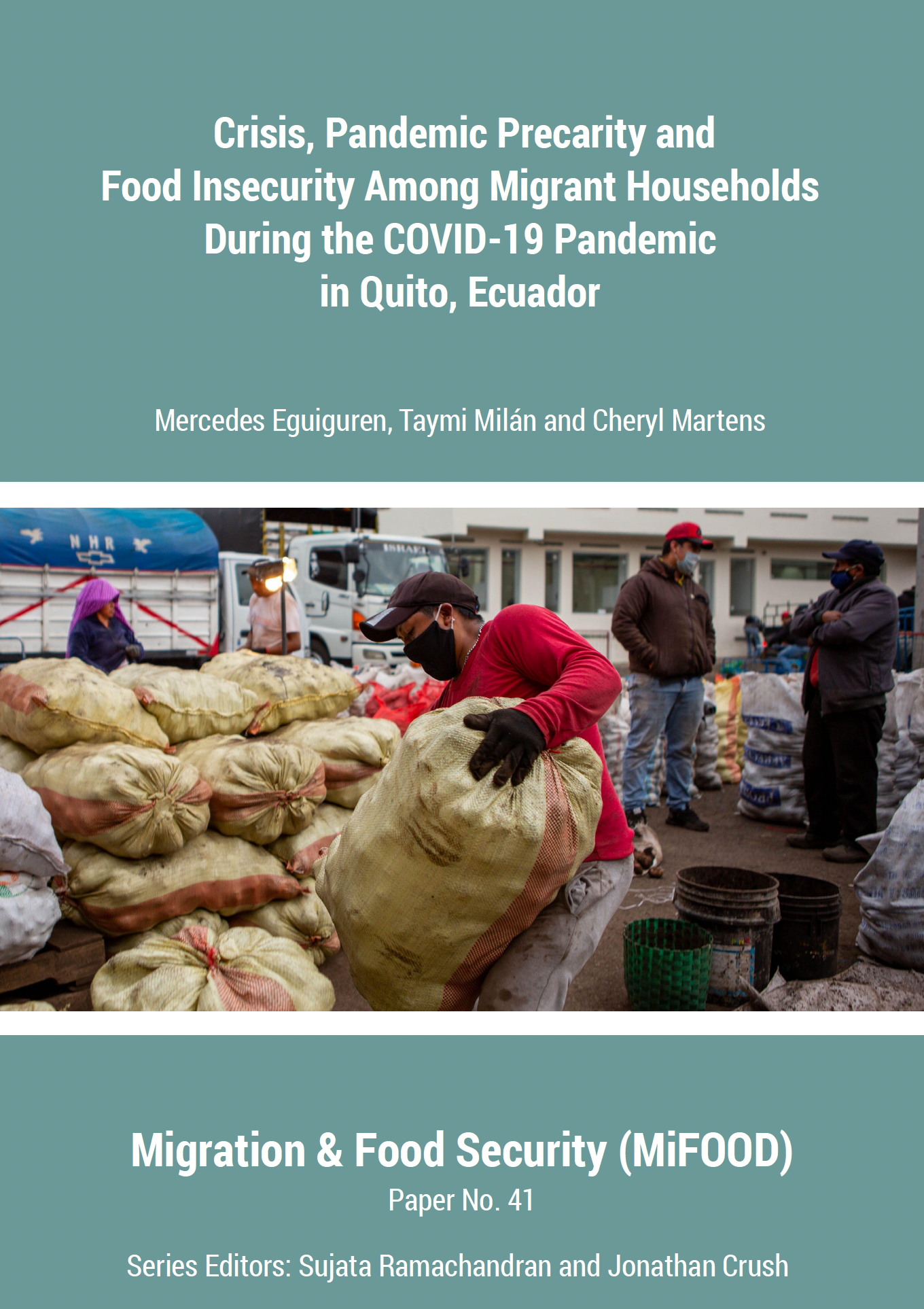This study examines the food insecurity experiences of Venezuelan migrants in Quito, Ecuador, within the broader context of the Venezuelan crisis, regional migration responses, and the structural precarity migrants face. Moving beyond the dominant “migration crisis” narrative, this paper adopts a crisis-living framework to analyze how protracted instability and pandemic precarity shape migrants’ experiences. Based on a 2023 survey of migrants and refugees who lived in Quito throughout the COVID-19 pandemic, the findings reveal that food insecurity is a persistent challenge, disproportionately affecting female-led and extended households. Key factors influencing food insecurity include job instability and deteriorating employment conditions, limited income diversification, and weak institutional support. Additionally, remittance dynamics -whether sending or not receiving remittances- contribute to economic strain, albeit to a lesser extent. While food insecurity remains prevalent among migrants in Quito, many perceive an improvement compared to their experiences during the acute crisis in Venezuela. This perception is shaped by their past experiences of scarcity, showing the importance of considering crisis-living and pandemic precarity within migrant trajectories.

